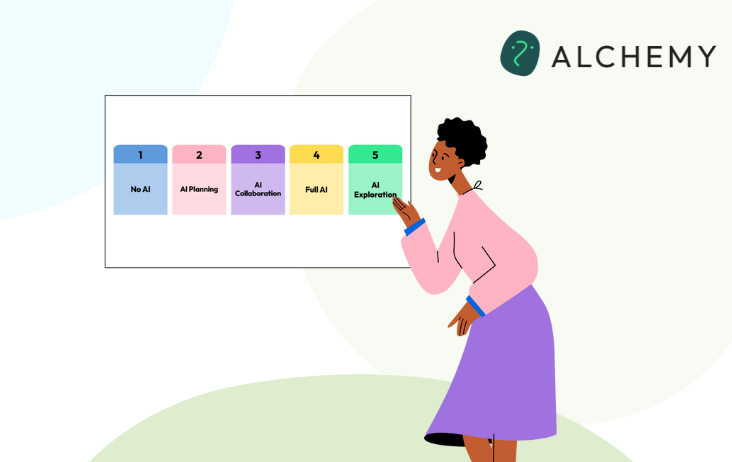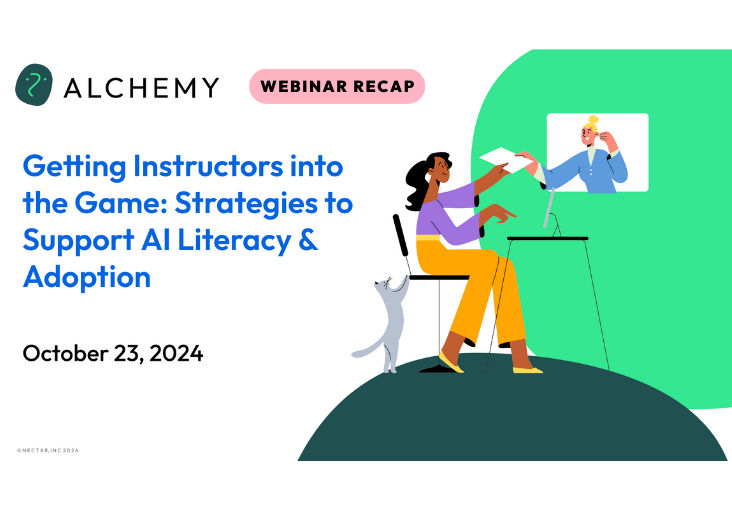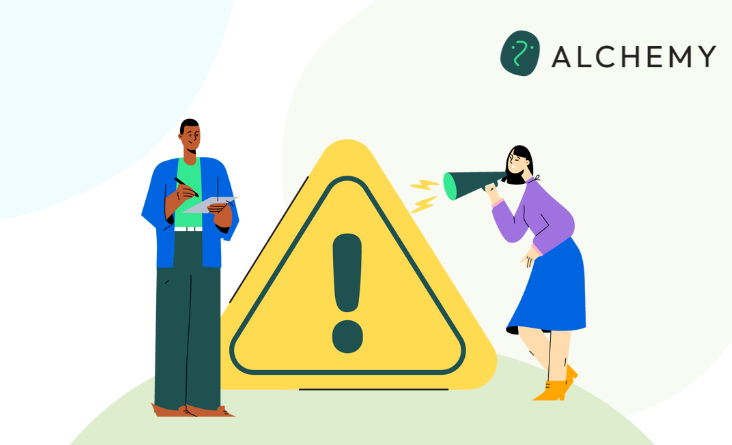Article
Harnessing the Power of AI in Education: Commitment to Effective and Ethical AI Integration

At Alchemy, we are dedicated to guiding educators through the evolving landscape of AI in education. Our mission is to help instructors intentionally and effectively adopt AI technologies in their teaching practices, ensuring that AI is used ethically and at desired levels. With the rise of AI in educational settings, we understand the importance of providing instructors with the tools and knowledge they need to seamlessly integrate AI into their curriculum while maintaining academic integrity.
The AI Assessment Scale: A Tool for Intentional AI Integration
In 2023, Perkins et al. developed the AI Assessment Scale (AIAS) as a framework to help educators determine the appropriate level of AI use in student assessments. This scale was revised in August 2024 to better reflect the rapidly changing AI landscape. The AIAS offers five levels of AI integration, ranging from no AI use to full AI exploration. These levels enable educators to tailor their assessments to desired learning outcomes, whether they wish to limit AI use or encourage students to explore AI’s creative potential.
Key Changes from the 2023 to the 2024 AIAS
The 2024 update to the AIAS introduced several key changes:
- Expanded Focus on Creativity: The new Level 5 emphasizes the creative use of AI, including encouraging students and instructors to co-design innovative assessment solutions.
- Refined Levels of AI Use: The levels were restructured to provide clearer guidance on how AI can be used effectively across different types of assessments.
- Improved Accessibility and Usability: The scale was redesigned to be more accessible and easier for educators to apply in various educational contexts.
Breakdown of the 5 Levels of AI Integration
- Level 1: No AI – Assessments are completed entirely without AI assistance, ensuring that students rely solely on their own knowledge and skills.
- Level 2: AI Planning – AI assists with pre-task activities like brainstorming and organizing, while the final submission is independently developed by the student.
- Level 3: AI Collaboration – AI is used to help complete tasks, with students critically evaluating and modifying AI-generated content.
- Level 4: Full AI – AI is extensively used throughout the assessment, with students directing AI to achieve specific goals.
- Level 5: AI Exploration – AI is used creatively to explore new solutions, with students and instructors potentially co-designing innovative approaches.

Alchemy’s Role in Supporting Educators
In support of educators effectively incorporating AI with their students, Alchemy has developed over 30 AI and Assessment examples across the five levels, representing a variety of disciplines and assignment types. These examples serve as models for how AI can be integrated into student assignments in ways that respect academic integrity while maximizing the benefits of AI. By providing these resources, we aim to empower educators to confidently incorporate AI into their teaching practices.
The Importance of AI Skills for Students
Recent surveys show that a majority of recent college graduates wish they had been taught how to effectively use AI during their studies. Additionally, employers increasingly favor job candidates who have knowledge and skills in using AI. This underscores the importance of integrating AI education into the curriculum, preparing students for a workforce that values AI knowledge and proficiency.
Conclusion: Explore Alchemy’s AI and Assessment Resources
As AI continues to shape the future of education, it is crucial for educators to understand how to use these tools effectively and ethically. Alchemy is here to support you in this journey. We invite you to explore our growing collection of AI and Assessment examples and discover how you can integrate AI into your teaching practices in ways that enhance learning outcomes, uphold academic integrity, and support career readiness.



